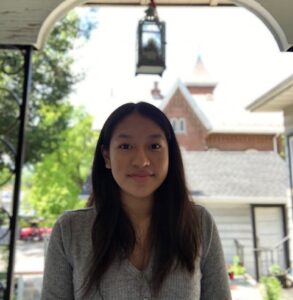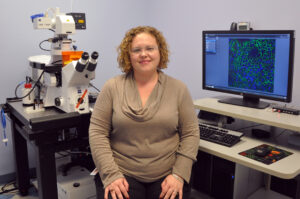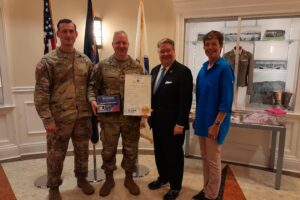Through the generous support of Regeneron Pharmaceuticals, four times a year, River Journal and River Journal North publish the on-site report of a River Towns high school science student who is paired with a Regeneron scientist to experience what it is like to put STEM education (Science, Technology, Engineering, Mathematics) to work in the real world.

When my teacher told me about the amazing opportunity to meet with Regeneron scientist Dr. Courtney Williams, I knew it was an opportunity I could not pass up.
I was delighted to speak with Dr. Williams, a Senior Staff Scientist in Regeneron’s Oncology and Angiogenesis department. She has been studying pathways that drive cancer cell growth to understand how to target them for cancer treatments.
In my own work, which I have been conducting as part of Peekskill High School’s Science Research Program, I’ve enjoyed learning about CAR T-cells, another area of oncology research with exciting promise.
I have been conducting a literature review of research on CAR T-cell therapy that has been used for cancers, including refractory lymphoma and leukemia. T-cells (white blood cells) are important to our immune system. They search and destroy invaders that enter our body.
CAR T-cells have a Chimeric Antigen Receptor (CAR) that is genetically engineered to give T-cells the ability to target specific proteins in malignant cells. Recent human clinical trials show that infusions of engineered T-cells are able to attach themselves to the specific tumor cell and kill them. There have been favorable outcomes for patients who are monitored for at least six months after treatment.
It’s common knowledge that chemotherapy and radiation are non-surgical cancer treatments with side-effects for the patient that are often painful. CAR T-cell therapy can be an effective, more tolerable new treatment for cancer patients. Unlike radiation and chemotherapy that kill healthy cells as well as cancerous ones, CAR T-cell therapy targets tumor cells with greater precision within a shorter treatment regimen.
I value the opportunity I had to learn about Dr. Williams’s early-stage research. Her latest studies about the proliferative and metabolic function of different proteins may help us better understand tumor growth in the liver. In speaking with her, I learned about the critical role early biology research can have on drug discovery and development, helping lay the groundwork for potential medicines.

With a greater understanding of the underlying biology of the disease, she and her Regeneron colleagues hope to “follow the science,” as they say, to identify the next great medicine for people in need.
Most important, Dr. Williams gave me advice that I will always keep in mind. She said, “If you want to become a scientist, you have to get used to failure because that’s what pushes you to do better.”
Observing how passionate Dr. Williams is about her work is inspiring for young scientists like me.




